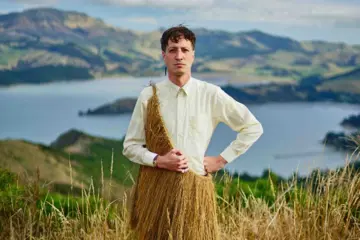In March 2011, a massive earthquake measuring 9.1 on the Richter scale, struck the coast of Japan. The devastating tremor sent a tsunami towards the mainland that smashed into 700 miles of Japanese coastline, including at the site of the Fukushima Daiichi Nuclear Power Plant. Despite the facility being equipped with six-metre-high seawalls, its defenses were breached by the colossal wall of water, inundating the station's vital infrastructure and beginning a chain of failures that would lead to three nuclear-reactor meltdowns, hydrogen-air explosions, and the release of radioactive material into the sea. This much, the majority of people probably know. What has happened since, however, is far less widely understood.
Some seven years on, traces of radioactive waste believed to have originated from Fukushima are still being detected by scientists as far away as Northern Queensland and California. Several mass "die-offs" in recent years, most notably of sea lions, have also been attributed to radioactive contamination by some marine biologists and pollutants from the power plant are believed to have already entered the global food chain via commercial fishing. Perhaps most disturbing of all, the long-term consequences of such a sustained radiation leak — the most significant since the Chernobyl disaster in 1986 — are near-impossible to accurately predict. What is known is that with decay rates of nuclear pollution lasting hundreds, even thousands of years, it will be future generations who'll have to live with the Fukushima disaster's legacy.
British playwright Lucy Kirkwood has drawn inspiration from these events for her ecological drama The Children, which imagines a similar scenario set in the United Kingdom. Riffing on ideas about the generational divides between the Baby Boomers and their Millenial offspring, it follows three nuclear scientists who are confronted by the task of cleaning up a disastrous meltdown, as they also wrestle with the merits of self-sacrifice over self-preservation.
In the first new production of Melbourne Theatre Company's 2018 season, a co-production with Sydney Theatre Company, Pamela Rabe stars alongside Sarah Peirse and William Zappa in the Australian premiere of this 2016 play. Rabe is perhaps best known for her portrayal of sadistic prison governor Joan "The Freak" Ferguson in TV hit Wentworth, which last year saw her appear in one of the most violent scenes in Australian television history, slicing off the tongue of inmate "Juicy" Lucy Gambaro. But while her recent on-screen appearances may have been infamously gory, her stage time has seen her channel a far more maternal spirit, playing a series of mothers in plays including Henrik Ibsen's Ghosts, for Sydney's Belvoir Theatre, and The Testament Of Mary, for Melbourne's Malthouse. The Children will once again see Rabe in a motherly guise.
"It's certainly informed by the terror we find in those more familiar apocalyptic stories. But this play is more about how you live with that dread, how you exist day to day under a cloud of danger."
Don't miss a beat with our FREE daily newsletter
"This play is still about parents and their relationships to their children. It's the thread that binds this play together," Rabe explains. "It explores the responsibilities one generation has to the next and actually in this story it's an even broader concern, about the responsibility one generation has for the future of the world. But it's also asking how we can confront such overwhelming forces while still protecting that which is immediately precious to us - our marriages, our home lives, our family relationships."
Kirkwood's vision of an imperilled Britain exists in stark contrast to the familiar apocalyptic trope of explosive devastation that has long been a favoured vehicle of Hollywood blockbusters. Again, Kirkwood takes her lead from Fukushima. For all the potential ecological horrors that events unfolding in Japan, and elsewhere, may eventually inflict, our current society is often disproportionately relaxed when it comes to the long-term health of our planet. The root of this apathy is easy enough to pinpoint, however. In the ensuing years since the 2011 earthquake, authorities have sought to downplay the threat at Fukushima, and conveniently, since the terrifying spectacle of the reactor explosions that were televised around the world, the nuclear plant's dangers have become far more insidious. To the casual observer today, the only obvious signs of any catastrophe would be the eerily abandoned houses in the exclusion zone surrounding the power station.
The Children also takes place in a benign location, within an ordinary a home. "It's a very domestic setting - it's not in some dystopia or an imagined or fictional place. It's a very domestic exploration of how you live with that fear and anxiety in real life, as opposed to any kind of heightened or stylised world," Rabe notes. "It's certainly informed by the terror we find in those more familiar apocalyptic stories. But this play is more about how you live with that dread, how you exist day to day under a cloud of danger, rather than how you conquer or escape it."
At the age of just 33, Kirkwood is one of the brightest young talents in British theatre. Her breakout play, Chimerica, which received its Australian premiere by Sydney Theatre Company last year, was an unstoppable hit when it debuted in London in 2013. The Children has also been a runaway success, having already wowed audiences and critics alike at seasons in London and on New York's Broadway. Despite Kirkwood's youth, the trio of characters in The Children are all middle-aged, and Rabe has been struck by the knowing insight and maturity this playwright has gifted her protagonists. "She manages to make fresh something that we're already living with. She's explored this notion of how we get on with our day-to-day lives as human beings, who feel the tug and pull toward one's responsibility living on this planet, and what is our contribution to its enduring, particularly for future generations?
"She's complicated that by making these people nuclear engineers, and therefore fully aware of what the consequences will be for the planet. But the fact that she makes it play out in a very real, recognisable scenario with three old friends, two of whom are married, but who have a long-shared history in a recognisable kind of situation, I think manages to make that stuff sing, be very entertaining and very funny, dry, complicated, and suspenseful. She puts it in a kind of genre that makes it possible to very easily slip inside the shoes of these characters. And that makes it all the more terrifying, all the more interesting, and all the more relevant."
Melbourne Theatre Company and Sydney Theatre Company presents The Children from 3 Feb at Southbank Theatre, Melbourne and from 29 Mar at the Sydney Opera House.















